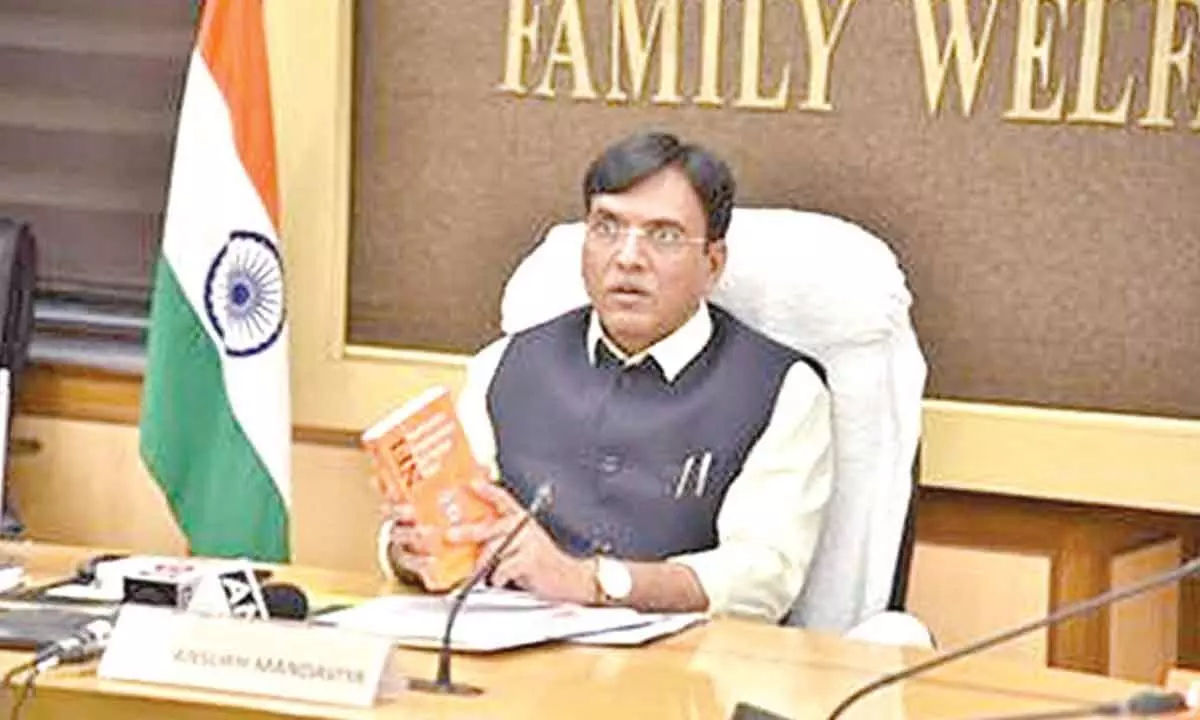What should govt do to make Indian Pharmacopoeia globally acceptable?
Union Health Ministry has recently released the 9th edition of Indian Pharmacopoeia (IP) 2022, which will be a book of standards for the drug manufacturers in the country
image for illustrative purpose

To improve the quality of medicines manufactured in the country, the Union Health Ministry has recently released the 9th edition of Indian Pharmacopoeia (IP) 2022, which will be a book of standards for the drug manufacturers in the country. The IP 2022 contains 92 new monographs for drugs, 12 new general chapters, 1,245 monographs for formulations, 930 monographs for active pharmaceutical ingredients (APIs) as well as dissolution specifications for all prolonged release formulations. Till date there are no such specifications for prolonged release formulations and it will definitely impact public health in the long term in a big way.
Of the 92 new monographs, there are 60 chemical, 21 vitamins, minerals, amino acids, fatty acids, etc., 3 biotechnology-derived therapeutic products, 4 human vaccines, 2 blood and blood related products, 2 herbs and herbal related products, and 7 phytopharmaceutical ingredient category monographs. Besides this, IP 2022 also contains 652 pharma reference substances covering 70 per cent requirement of reference materials used for quality control in the country. Currently, there are 300 impurity standards in IP which are crucial for managing pharmaceutical quality.
It also includes remdesivir API and injection monographs, favipiravir API and tablets monographs, 2DG API & powder & sachet monographs, rapid microbiological testing—draft chapter. This has led to the total number of 3,152 monographs in the current edition of IP. There are several changes in IP 2022 which will have a positive impact on public health. These changes are certainly facilitating growth and expansion of the Indian pharma industry and research.
No doubt, the 9th edition of IP will be a step forward to delivering quality medicines to the public at large. Several monographs and general chapters have also been revised to update them as per current global requirements and to harmonize with other pharmacopoeias like US Pharmacopoeia (USP), British Pharmacopoeia (BP), European Pharmacopoeia (EP), etc. The harmonization of standards with global standards is expected to help IP getting recognized and accepted in foreign countries. India is the world's largest supplier of generic medication and accounts for 20 per cent of the worldwide supply of generics by volume.
India ranks third in terms of pharmaceutical production by volume, 14th in terms of value (worth USD 42 billion). But unfortunately, only four countries – Afghanistan, Ghana, Nepal and Mauritius- have accepted IP as a book of standards. India exports, mainly generics, to more than 250 countries and one out of the three drugs consumed by a patient in any part of the globe is from India. But, Indian Pharmacopoeia is still not recognized by these countries. On the other hand, USP, BP and EP are accepted by all these countries.
Medicines to the US, the UK and to the EU countries are supplied by India, but they are even now reluctant to recognize IP. If IP is accepted by more and more country, it will be a huge relief for the exporters as it will help the pharma exporters, including the merchant exporters, to export their products to these countries without retesting them. For the merchant exporters, the medicinal products in IP can be exported to overseas markets as they are. There is no requirement of applying a separate production method. Like the supply in the domestic market, medicines manufactured in IP, can be bought and exported to the IP accepted countries which will treat them like their locally manufactured drugs. But, to the non-accepted countries, a separate method of production has to be done in their quality and safety perspectives as per each country's pharmacopoeia.
The government should now leave no stones unturned to ensure that Indian pharmacopoeia is acknowledged and appreciated worldwide. Even though we have become 'Pharmacy of the World' by specialising in generic medicine formulation and manufacturing, and by supplying affordable medicine to the world, IP is still not accepted by the world. The country should strengthen research and development in the pharmaceutical sector and should also make a roadmap and move forward so that more and more countries accept Indian pharmacopoeia.
The central government is now in talks with UAE government to include Indian Pharmacopoeia in the standards of pharmaceuticals authorized in UAE with an aim to boost export of Indian drugs to the Emirates. In UAE and in the GCC countries, 40 per cent of the drugs used by people are made by Indian companies, not in IP standards but in the pharmacopoeial standards of the USA or UK or the European Union. For accepting IP as an international pharmacopoeial standard, the government of India has to convince the countries in the world about the quality attributes of Indian drugs. For that the Indian government should walk the proverbial extra mile.
(The author is freelance journalist with varied experience in different fields)

